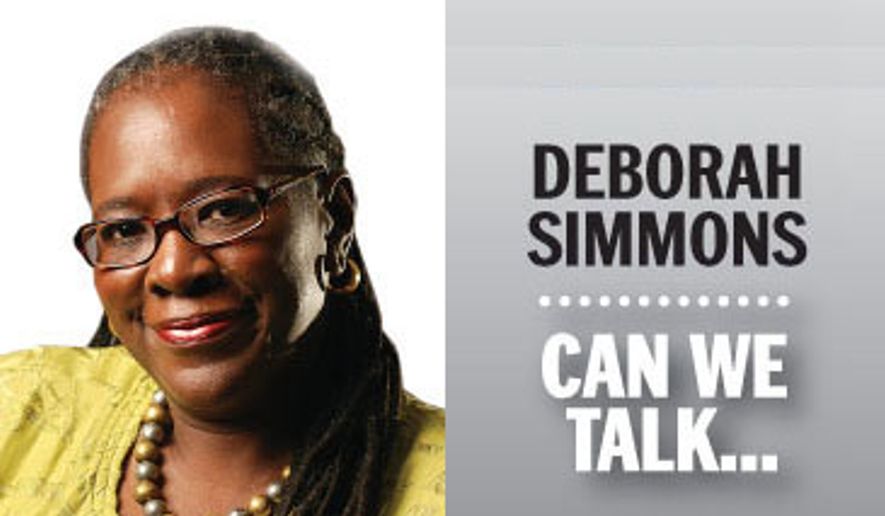ANALYSIS/OPINION:
What do the D.C. and regional job markets want and what will they need?
Well, let’s see.
Mayor Muriel Bowser knows something had to be done about the District’s ineffective employment and job-readiness programs. She knows because the 6.6 percent unemployment rate is second only to New Mexico’s (6.8 percent), because the 2013-14 high school graduate rate was a lousy 61.4 percent and because she knows that if you’re black or brown and you’re uneducated and unskilled, you’re unlikely to be un- or underemployed.
More important, Ms. Bowser knows because she was a member of the D.C. Council, not mayor, when the U.S. Department of Labor slapped the label “high risk partner” on the city. She also knows because she was a lawmaker when then-Mayor Vince Gray patted his own administration on the back as the unemployment rate dropped to 8.5 percent partly because new employed residents were moving into the city, while the already jobless had either given up looking for work, moved out of the city or were unprepared to gain employment.
Indeed, Mr. Gray took a tongue-lashing from then-lawmaker Marion Barry, who, while handing out Thanksgiving turkeys in 2012, practically dared Mr. Gray to tell the people standing in line that the unemployment rate had dropped substantially: “I told Mayor Gray that: Don’t you use those numbers. He ought to be crying like I’m crying about it and raising hell about it and trying do something about it.”
SEE ALSO: Washington, D.C., Metro access dominated by young, white, wealthy
Team Bowser, preparing for a mayoral run, knew all that.
Enter Mayor Bowser, who is seemingly “trying do something about it” via the Workforce Investment Council, whose task is to marry the business community with workers.
It’s an ambitious, albeit advisory, task that could easily reap unintended consequences since D.C. is a sanctuary city. That means illegal immigrants of all sorts can easily claim D.C. residency, win job-training slots and/or jobs while the jobless remain unemployed.
In the end, that would be a win-win for unions and the business community, and a loss-loss for the indigent blacks who still lose out on hand-ups and still stand in line to get the handouts.
A saving grace could be Baghdad-born entrepreneur Andy Shallal of Busboys and Poets renown. I respect Mr. Shallal because I’ve frequented of his many establishments over the years, seeing with my own eyes and hearing with my own ears how he gives a hand up to the hard-to-employ. And having interviewed him and seen him in action around town in various settings, I can testify that Mr. Shallal adeptly handles his to-do list.
At first blush, conservatives will color him a socialist. But that’s OK, considering he’s a D.C. politician and a compassionate philanthropist. Still, conservatives should keep in mind that it’s the ornery bureaucratic red tape that could make or break his chairmanship of the Workforce Investment Council.
So if, for example, WIC wants to bolster vocational programs to meet current and future needs of the building and construction industry, then D.C. leaders should loosen certification and licensing regulations, not arbitrarily tighten them.
And if nonprofits have a proven and consistent pipeline with job providers, then D.C. leaders should help them funnel people into jobs, not hurt them by failing to pay the city’s share of the bill — another red tape snafu.
Gone also should be the days when job- and skills-training contractors get tax dollars because they help someone’s self-esteem and “do hair,” or even get paid because they dole out advice on how to dress for a job interview.
Leave those tasks to parents, mentors and volunteers. If you look at how 15- to 24-year-olds dress on their summer jobs — like they’re heading to a family cookout — then you can imagine how the D.C. government has wasted millions and millions of tax dollars.
The questions Mr. Shallal and WIC members must first ask are, as I said in the very beginning: What do the D.C. and regional job markets want and what will they need?
After those are answered, Mr. Shallal and WIC members must asked: How do we get there?
The asks and answers are key to the end goal of WIC, which is to substantially dent the joblessness rate and plug the welfare pipeline.
Or, in the words of conservatives, to position the near-hopeless so they are in the pipeline to become the very people who decide who gets a handout.
• Deborah Simmons can be reached at dsimmons@washingtontimes.com.
• Deborah Simmons can be reached at dsimmons@washingtontimes.com.




Please read our comment policy before commenting.